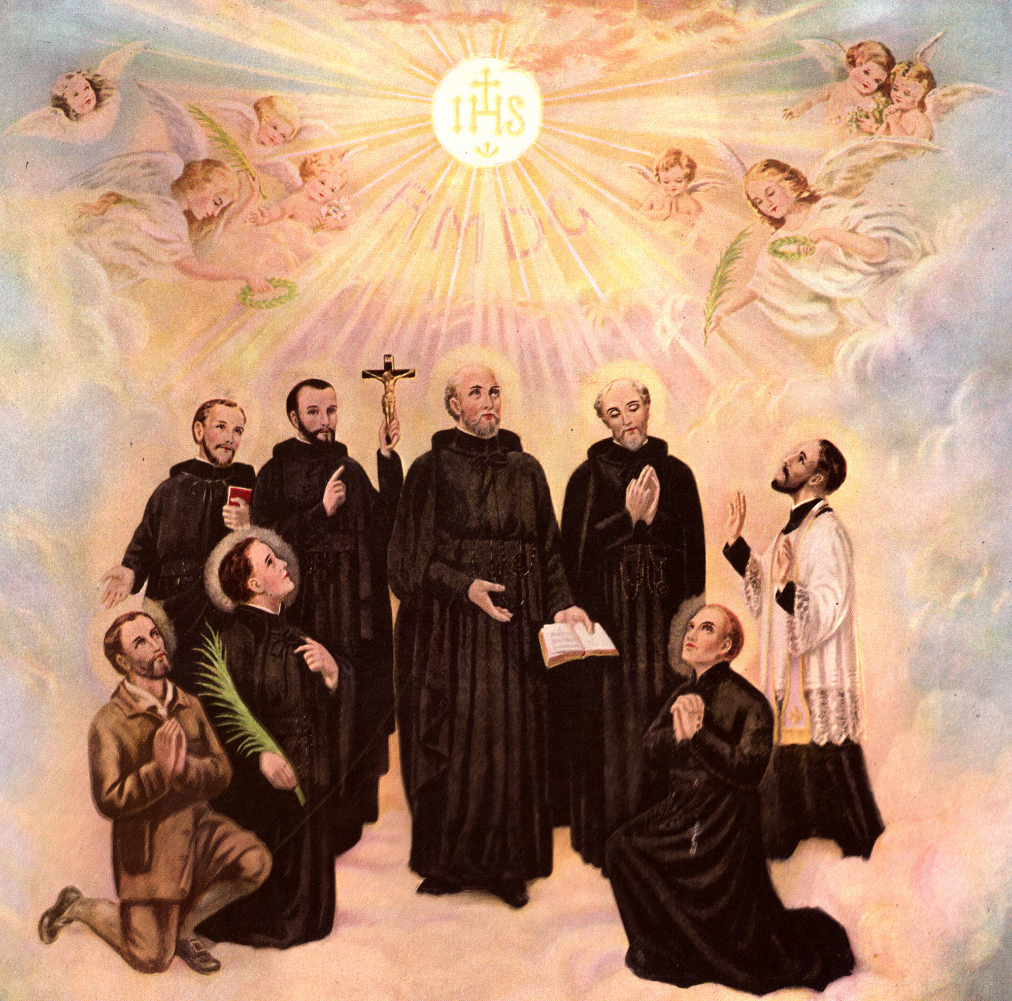"Against hope. . . in hope." Rom. 4: 18
Heroic hope is the eminent degree of this virtue, which makes us tend toward God, the object of eternal beatitude, relying, in order to reach Him, on the help He promised us.(1) The formal motive of infused and theological hope is God Himself ever helpful, Deus auxilians, or helpful Omnipotence.
As long as the Christian has not reached perfection, his hope lacks firmness; it is more or less unstable, in the sense that the soul sometimes allows itself to slip into presumption when all is going well, and to fall subsequently into a certain discouragement when some undertaking does not succeed. Above these fluctuations, heroic hope is characterized by invincible firmness and trusting abandonment, sustained by unwavering fidelity to duty. The heroic confidence of the saints is also shown by its effects: it restores the courage of others and arouses hunger and thirst after the justice of God.
 |
| More Martyrs of Spain |
THE INVINCIBLE FIRMNESS OF PERFECT HOPE
The Council of Trent tells us: "We should all have a most firm hope in the help of God; for if we do not resist His grace, as He has begun the work of salvation in us, He will finish it, working in us both to will and to accomplish, as St. Paul says (Phil. 2: 13)." (2)
The invincible firmness of hope appears, we have seen, in the passive purification of the spirit when, to make us hope purely in Him, the Lord permits every human help to disappear. Then occur rebuffs, at times calumnies, which give rise to a certain mistrust in those who until then had been helpful. In addition, the tried soul has a clearer view of its own wretchedness; it is likewise at times depressed by illness, and must overcome strong temptations to discouragement or even to despair, proceeding from the enemy of all good. The soul must then hope supernaturally and heroically against all human hope, as St. Paul says of Abraham, who, although nearly a hundred years old, did not despair of becoming the father of a great number of nations, according to the promise which had been given to him: "So shall thy seed be."
 |
| Some of the Oblate Martyrs of Spain |
(3)If this trial is courageously endured, hope grows stronger and stronger during it and is increased tenfold. However, it does not give us absolute certitude that individually we shall be saved, since that would require a special revelation; (4) but we hope increasingly for salvation with a certitude of tendency. Just as under the direction of Providence, the animal's instinct tends infallibly toward its end, the swallow toward the country to which it should return, so under the direction of faith in the divine promises we tend infallibly toward eternal life. (5)
This firmness in tending toward eternal life should be invincible because of the formal motive on which it rests: God who always aids us, according to His promises. In spite of rebuffs, contradictions, the sight of our wretchedness and our sins, we should always hope in God, who has promised His help to those who ask Him for it with humility, trust, and perseverance. "Ask, and it shall be given you; seek, and you shall find; knock, and it shall be opened to you. . . . And which of you, if he ask his father bread, will he give him a stone? Or a fish, will he for a fish give him a serpent? . . . If you then, being evil, know how to give good gifts to your children, how much more will your Father from heaven give the good Spirit to them that ask Him!" (6) And if we must ask conditionally for temporal goods, in the measure in which they are useful to our salvation, we should ask unconditionally, humbly to be sure, but with absolute trust, for the graces necessary to persevere. And as St. Luke relates in the text just quoted, we should thus ask not only for the graces necessary for our sanctification, but for the Holy Ghost Himself, the gift par excellence. He is sent anew when the soul passes from one degree of charity to another that is notably higher, as it must be, for the soul to pass through the trials which are ordered precisely to this progress. Hope thus purified becomes invincible, according to the words of St. Paul, which have sustained the martyrs: "If God be for us, who is against us?" (7) The Lord has more than once said to His saints: "You shall lack help only when I lack power." St. Teresa of the Child Jesus used to say: "Even if I were the greatest sinner on earth, I should not have less trust in God, for my hope does not rest upon my innocence, but on God's mercy and omnipotence." |

